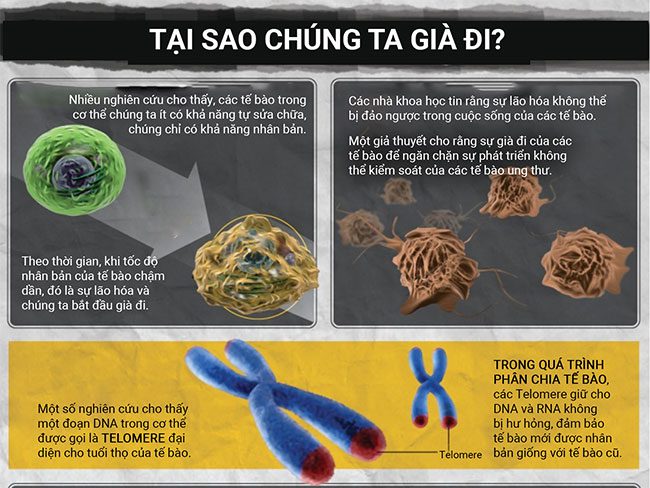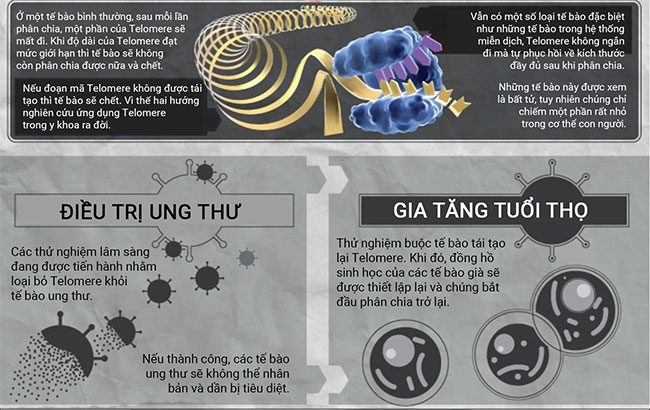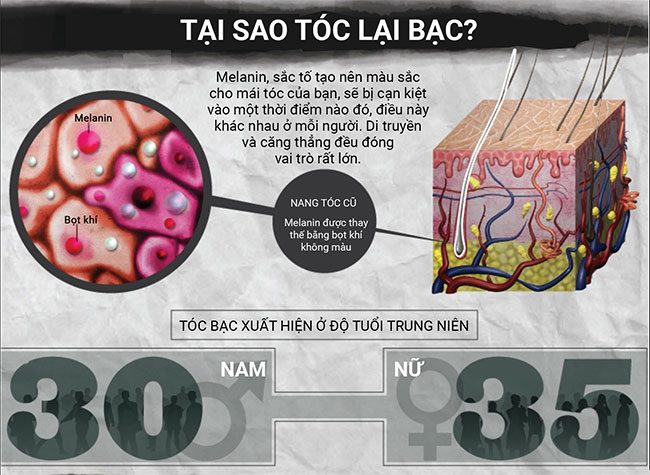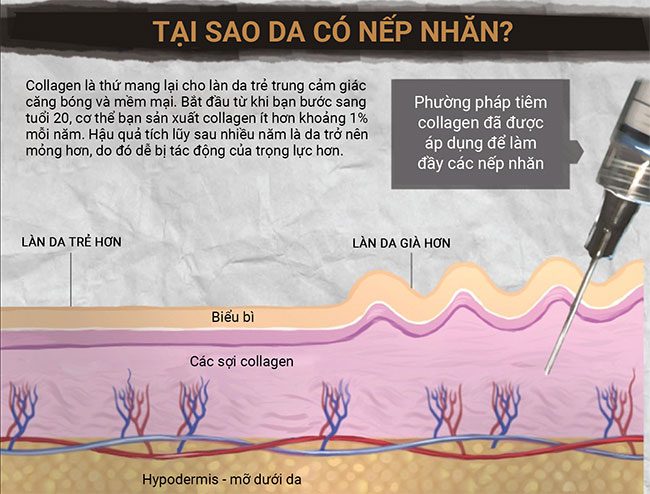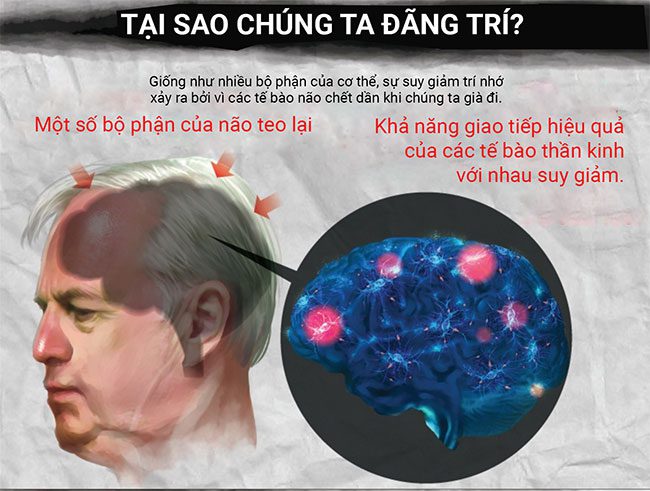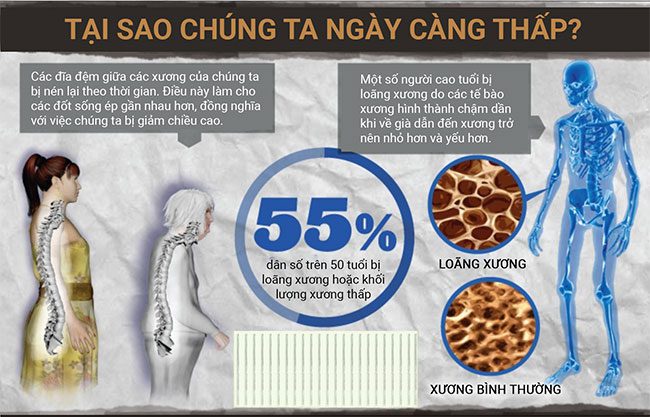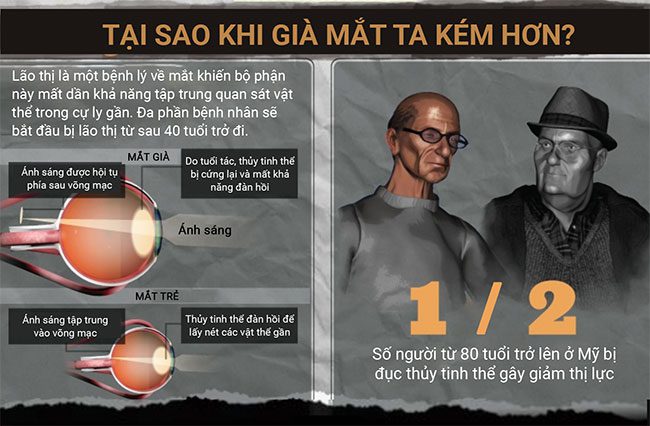Our bodies grow and develop thanks to the replication of cells. Over time, as the rate of cell replication slows down, this is known as aging, and we begin to grow old.
Some studies indicate that a segment of DNA in the body known as Telomere represents the lifespan of a cell. In a normal cell, after each division, a portion of the Telomere is lost. When the length of the Telomere reaches a certain limit, the cell can no longer divide. If the Telomere DNA segment is not regenerated, the cell will die.
However, there are still some special types of cells, such as those in the immune system, where the Telomere does not shorten but instead restores itself to its full size after division. These cells are considered immortal; however, they only make up a very small part of the human body.
Therefore, two research directions for applying Telomere in medicine have emerged:
- Cancer Treatment: Clinical trials are underway to eliminate Telomeres from cancer cells. If successful, cancer cells will be unable to replicate and will gradually be destroyed.
- Increasing Lifespan: Experiments aim to force cells to regenerate their Telomeres. In this case, the biological clock of aging cells will be reset, and they will begin to divide again.

